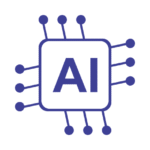
As an experienced developer, you know that job interviews can be nerve-wracking, but with the right preparation and strategies, you can confidently showcase your skills and experience to potential employers.
In this article, we will provide you with valuable insights and advice on assessing skills and experience in senior .NET developers, interviewing strategies for hiring senior .NET talent, and common mistakes to avoid during the interview process. We will cover technical and behavioral interview questions tailored for senior .NET developers, showcase coding exercises that’ll help you prepare, discuss the significance of showcasing your portfolio and projects, and outline tips for negotiating salary and benefits as a senior .NET developer.
By the end of this article, you’ll have a deeper understanding of how to successfully interview for a senior .NET developer position and be well on your way to securing your dream job. So let’s get started!
Key Skills and Experience for Senior .NET Developers
Assessing skills and experience in senior .NET developers is crucial for employers looking to hire top talent. With the constantly evolving technological landscape, senior .NET developers require a range of technical and soft skills to excel in their roles and drive business success. Below are the key skills and experience that employers typically look for:
| Technical Competencies: | Soft Skills: |
|---|---|
| Proficiency in .NET frameworks: Senior .NET developers must have a deep understanding of .NET frameworks, including .NET Core, ASP.NET, and Entity Framework. | Problem-solving: Senior .NET developers should have strong problem-solving abilities to identify issues and implement effective solutions. |
| Experience with C#: Senior .NET developers must be proficient in C#, a popular programming language used in developing .NET applications. | Teamwork: Senior .NET developers must be team players who can collaborate with cross-functional teams to achieve project goals. |
| Database management: Senior .NET developers should have experience in designing and managing databases, including SQL Server and Oracle. | Communication: Senior .NET developers should possess excellent communication skills to effectively communicate with stakeholders and team members. |
Employers look for candidates who possess a combination of technical and soft skills to ensure the success of their projects. In addition to the skills mentioned above, senior .NET developers should also demonstrate proficiency in software development methodologies, such as Agile and Scrum, and knowledge of software design patterns, such as MVC and MVVM.
Technical Interview Questions for Senior .NET Developers
Technical interview questions for senior .NET developers are designed to assess the candidate’s technical expertise and problem-solving skills. Here are some common technical interview questions for senior .NET developers:
1. What is the difference between abstract classes and interfaces?
Abstract classes and interfaces are both used to provide a baseline for other classes to follow. However, abstract classes can have some implementation code, while interfaces only define the methods that must be implemented.
2. How do you optimize the performance of a .NET application?
To optimize the performance of a .NET application, you can use techniques such as caching, asynchronous programming, and lazy loading. You can also use tools like the .NET profiler to identify performance bottlenecks.
3. How do you handle errors in a .NET application?
In a .NET application, you can handle errors using try-catch blocks. You can also create custom exception classes to handle specific errors.
4. Explain the SOLID principles.
The SOLID principles are a set of guidelines for object-oriented software design. SOLID stands for Single Responsibility Principle, Open/Closed Principle, Liskov Substitution Principle, Interface Segregation Principle, and Dependency Inversion Principle.
5. How do you ensure the security of a .NET application?
To ensure the security of a .NET application, you can use techniques such as parameterized queries, input validation, and encryption. You can also use ASP.NET Identity to manage authentication and authorization.
Preparing for technical interview questions is essential for senior .NET developers. By knowing the technical concepts and best practices, candidates can confidently showcase their skills during the interview process. Remember to study the topics mentioned above and practice coding exercises to ace your next interview.
Behavioral Interview Questions for Senior .NET Developers
When interviewing for a senior .NET developer position, it’s not just technical skills that employers are looking for. They also want to assess your behavioral competencies to determine if you are a good fit for the organization’s culture and goals. Here are some common behavioral interview questions you may encounter:
1. Tell me about a time when you had to work on a complex project with tight deadlines? How did you manage it?
Employers want to know if you have experience handling pressure and managing your time efficiently. Use real-life examples to demonstrate your ability to prioritize tasks, delegate responsibilities, and deliver high-quality results within tight deadlines.
2. Describe a situation where you had to work with a difficult colleague. How did you handle it?
As a senior .NET developer, you will be leading teams and collaborating with colleagues from various departments. Employers want to know if you have the communication and interpersonal skills to handle conflicts and build productive relationships. Describe a time when you had a disagreement with a colleague and explain how you resolved it in a professional manner.
3. Tell me about a time when you had to implement a challenging solution. How did you approach it?
Employers want to assess your problem-solving skills and your ability to think creatively and innovatively. Describe a time when you encountered a difficult technical challenge and explain how you tackled it. Highlight the steps you took to identify the root cause of the problem, come up with a solution, and test it thoroughly to ensure its effectiveness.
4. Explain how you have implemented new technologies in your previous projects?
Senior .NET developers are expected to stay up-to-date with the latest technologies and trends in the industry. Employers want to know if you have the aptitude and willingness to learn new things and implement them in your work. Give examples of how you have introduced new technologies or frameworks in your previous projects and how they improved the project’s overall performance or scalability.
By preparing for and confidently answering behavioral interview questions, you can demonstrate your readiness to tackle challenges, collaborate with teams, and contribute to the employer’s success.
Coding Exercise for Senior .NET Developers
When assessing skills and experience in senior .NET developers, a coding exercise can be an effective method of evaluating practical abilities. For this exercise, we suggest building a scalable web application using .NET technologies.
The exercise should involve:
- Designing a database schema and creating a database using SQL Server
- Implementing a RESTful API using ASP.NET Core
- Creating a front-end interface using a JavaScript framework such as React or Angular
- Ensuring the application is scalable and can handle large amounts of data
When completing this exercise, keep in mind the following best practices:
- Ensure your code is organized and easy to understand
- Use appropriate design patterns and architecture principles
- Include comments to explain your thought process and reasoning
- Test your application thoroughly to ensure it is free of bugs and errors
Common challenges you may encounter include:
- Handling large amounts of data and ensuring performance optimization
- Dealing with complex business rules and logic
- Ensuring the front-end interface is user-friendly and accessible
By completing this coding exercise, you can demonstrate your technical abilities and problem-solving skills to potential employers. Don’t be afraid to showcase your creativity and innovation!
Tips for Preparing for a Senior .NET Developer Interview
Preparing for a senior .NET developer interview is key to showcasing your skills and experience effectively. Here are some tips to help you prepare:
- Research the company: Before the interview, research the company and its values, products, and services. This will help you tailor your responses to align with the company’s goals and culture.
- Review technical concepts: Brush up on technical concepts relevant to the job position, such as .NET frameworks, database management, and design patterns. Be prepared to answer technical questions with confidence.
- Practice coding exercises: Practice coding exercises to improve your practical skills. This will give you an opportunity to work through common challenges and identify areas for improvement.
- Enhance communication skills: Prepare to effectively communicate your skills and experience by practicing your elevator pitch and honing your storytelling ability. Be sure to emphasize your problem-solving abilities and how you have contributed to successful projects in the past.
- Prepare questions to ask the interviewer: Prepare thoughtful questions to ask the interviewer to show your interest in the position and demonstrate your knowledge of the company.
- Follow up after the interview: After the interview, follow up with a brief thank you email. This will give you another chance to show your enthusiasm for the position.
By following these tips, you will be well-prepared for your senior .NET developer interview and increase your chances of landing your dream job.
Common Mistakes to Avoid in a Senior .NET Developer Interview
Interviewing for a senior .NET developer role can be a nerve-wracking experience, and it’s easy to make mistakes that could cost you the job. Here are some common mistakes to avoid:
- Lack of preparation: Failing to research the company or review technical concepts can leave you feeling unprepared. Make sure you do your homework and come ready to impress.
- Poor communication: Communication skills are essential for senior .NET developers, and it’s important to articulate your thoughts clearly and concisely. Avoid rambling or using technical jargon that the interviewer may not understand.
- Technical gaps: Senior .NET developers are expected to have a strong command of technical concepts, and any gaps in your knowledge can be a red flag for potential employers. Brush up on your skills and be prepared to answer technical questions.
- Failure to demonstrate problem-solving abilities: As a senior .NET developer, you’ll be expected to be a problem solver. Be prepared to showcase your ability to think critically and creatively to solve complex technical issues.
Avoiding these common pitfalls can help you stand out during your interview and increase your chances of landing the job. Remember to stay confident, articulate, and demonstrate your strong technical skills and experience.
Negotiating Salary and Benefits as a Senior .NET Developer
As a senior .NET developer, it is important to negotiate a fair salary and benefits package during the hiring process. However, it can be challenging to know your worth and how to effectively negotiate with potential employers. Here are some tips to help you assess your skills and experience and negotiate the best possible salary and benefits:
Assessing Your Skills and Experience
The first step in negotiating your salary and benefits is to assess your skills and experience. Take a close look at your technical competencies and soft skills, such as teamwork, communication, and problem-solving abilities. Consider your experience level and how it compares to other senior .NET developers in the market. Research industry standards and market rates to determine a reasonable salary range for your skills and experience.
Presenting Your Value
During the negotiation process, it is important to effectively present your value to potential employers. Highlight your most relevant skills and experience and provide specific examples of how you have contributed to previous projects or companies. Discuss your ability to solve complex problems and work collaboratively with others. Demonstrate your willingness to learn and adapt to new technologies and industry trends.
Researching the Company
Before entering into salary negotiations, research the company you are interviewing with. Understand their size, financials, and industry position. Determine how your skills and experience align with their needs and mission. This information can help you better understand the company’s salary and benefits structure and negotiate accordingly.
Negotiating Effectively
When it comes to negotiating salary and benefits, it is important to be confident but also flexible. Begin by presenting a reasonable salary range based on your skills and experience, but be open to negotiation. Be willing to discuss other forms of compensation, such as equity or performance bonuses. Remain professional and courteous throughout the negotiation process, and be prepared to walk away if the offer is not satisfactory.
Final Thoughts
Negotiating salary and benefits as a senior .NET developer can be challenging, but with preparation and research, it is possible to secure a fair compensation package. Remember to assess your skills and experience, present your value effectively, research the company, negotiate with confidence, and remain flexible throughout the process.
Showcasing Projects and Portfolio as a Senior .NET Developer
As a senior .NET developer, having an impressive portfolio and showcasing relevant projects can go a long way in demonstrating your skills and experience.
A well-curated portfolio can help you stand out from other candidates and demonstrate your problem-solving and innovation skills. Ensure you include a variety of projects that showcase your technical skills and ability to tackle different challenges.
When presenting your portfolio during an interview, provide details of the project’s scope, the programming languages and frameworks used, and your role in the project. Additionally, be prepared to discuss the challenges you faced during the project and how you overcame them.
It’s also essential to ensure that your portfolio is up to date and relevant to the position you are applying for. You can tailor your portfolio to match the job requirements by highlighting relevant projects and experiences.
In summary, showcasing your projects and portfolio as a senior .NET developer can help prove you have the necessary skills and experience for the job. Make sure to curate a well-rounded portfolio that demonstrates your technical abilities, problem-solving skills, and innovation.
Continuing Professional Development for Senior .NET Developers
Continuous learning and professional development are crucial for senior .NET developers looking to stay relevant and advance their careers. The field of technology is constantly evolving, and developers need to keep up with the latest trends and technologies to remain competitive in the job market.
Here are some tips for assessing your skills and experience as a senior .NET developer:
- Take online courses on new technologies and frameworks to expand your knowledge and skillset.
- Attend conferences and industry events to learn about the latest trends and network with other professionals.
- Get involved in online communities and forums to stay up to date with the latest developments and to collaborate with others.
Remember, the more you invest in your professional development, the more valuable you become to potential employers. By staying current and up to date with the latest technologies and trends, you can position yourself as a highly sought after senior .NET developer.
Conclusion
Senior .NET developers looking to ace their job interviews should be well-prepared and showcase their skills and experience effectively. By focusing on key technical competencies, problem-solving abilities, teamwork, and communication skills, they can stand out from the competition.
To prepare for technical interview questions, it is essential to review concepts such as object-oriented programming, design patterns, debugging, performance optimization, and security. In addition, practicing coding exercises and preparing questions to ask the interviewer can enhance their chances of success.
During the interview process, it is crucial to avoid common mistakes such as lack of preparation, poor communication, technical gaps, and failure to demonstrate problem-solving abilities. Instead, they should focus on presenting their value, showcasing their projects and portfolio, and negotiating salary and benefits effectively.
As experienced developers, senior .NET professionals should also prioritize continuous learning and professional development. By leveraging resources such as online courses, conferences, and community forums, they can enhance their technical skills and stay up to date with industry trends.
In summary, by following the advice and insights provided in this article, senior .NET developers can enhance their interview skills and secure their dream job. Keep these interview questions for a .net senior developer in mind and you’ll be well on your way to success!
FAQ
Q: How can I prepare for a senior .NET developer interview?
A: To prepare for a senior .NET developer interview, it is crucial to research the company, review technical concepts, practice coding exercises, and enhance communication skills. It is also important to prepare questions to ask the interviewer and follow up after the interview.
Q: What are the key skills and experience employers look for in senior .NET developers?
A: Employers typically look for senior .NET developers who have proficiency in .NET frameworks, C#, and database management. Soft skills, such as problem-solving, teamwork, and communication abilities, are also highly valued.
Q: What are some technical interview questions for senior .NET developers?
A: Technical interview questions for senior .NET developers may cover topics such as object-oriented programming, design patterns, debugging, performance optimization, and security. Detailed explanations and suggested answers are available for each question.
Q: What are behavioral interview questions for senior .NET developers?
A: Behavioral interview questions for senior .NET developers assess soft skills, work ethic, and problem-solving abilities. These questions may relate to teamwork, handling difficult situations, and managing projects with tight deadlines. Sample answers and tips are provided.
Q: How can I prepare for a coding exercise as a senior .NET developer?
A: To prepare for a coding exercise, senior .NET developers should understand the requirements, practice coding in .NET technologies, and familiarize themselves with common challenges and best practices. Tips for completing the exercise are also provided.
Q: What are common mistakes to avoid in a senior .NET developer interview?
A: Senior .NET developers should avoid common mistakes such as lack of preparation, poor communication, technical gaps, and failure to demonstrate problem-solving abilities. Practical tips on how to overcome these pitfalls are provided.
Q: How can I negotiate salary and benefits as a senior .NET developer?
A: When negotiating salary and benefits, senior .NET developers should consider factors such as market rates, company size, and industry standards. Tips on effective negotiation and presenting one’s value are provided.
Q: How can I showcase my projects and portfolio as a senior .NET developer?
A: To showcase projects and portfolio, senior .NET developers should have a well-curated portfolio, provide details of relevant projects, and demonstrate problem-solving and innovation skills. Tips on presenting projects during an interview are provided.
Q: How can I continue professional development as a senior .NET developer?
A: Senior .NET developers should engage in continuous learning and professional development by utilizing resources such as online courses, conferences, and community forums. The benefits of ongoing learning and its impact on job prospects are discussed.

Jessica is a highly accomplished technical author specializing in scientific computer science. With an illustrious career as a developer and program manager at Accenture and Boston Consulting Group, she has made significant contributions to the successful execution of complex projects.
Jessica’s academic journey led her to CalTech University, where she pursued a degree in Computer Science. At CalTech, she acquired a solid foundation in computer systems, algorithms, and software engineering principles. This rigorous education has equipped her with the analytical prowess to tackle complex challenges and the creative mindset to drive innovation.
As a technical author, Jessica remains committed to staying at the forefront of technological advancements and contributing to the scientific computer science community. Her expertise in .NET C# development, coupled with her experience as a developer and program manager, positions her as a trusted resource for those seeking guidance and best practices. With each publication, Jessica strives to empower readers, spark innovation, and drive the progress of scientific computer science.






